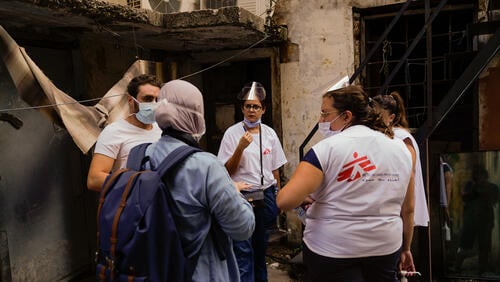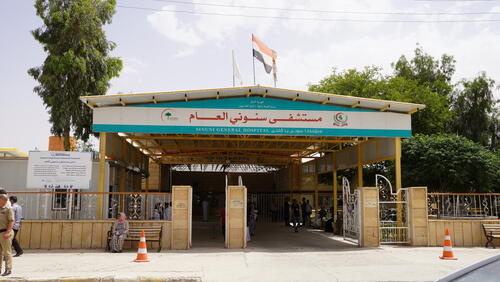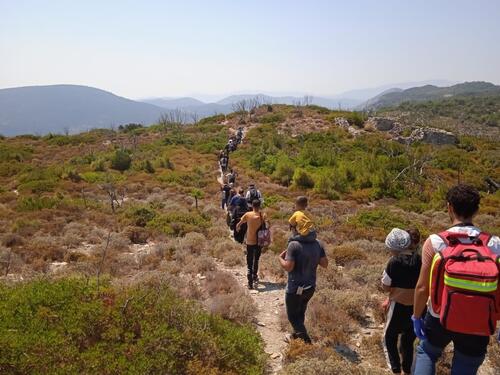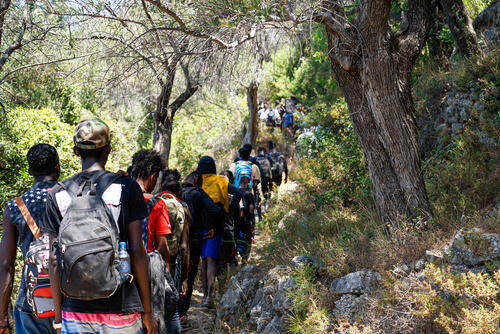The Kafala system is the only legal option available to migrant workers in Lebanon. Under this system, migrant workers are sponsored by an employer, who dictates the terms of their contract and the conditions under which they work. This leaves them vulnerable to exploitation and abuse, and restricts their access to healthcare.
In 2020, Médecins Sans Frontières (MSF) opened a clinic in Beirut providing migrant domestic workers with free-of-charge health consultations and specialist mental health support. Three years later, our teams continue to see the impact of the Kafala system on people’s living and working conditions as well as on their physical and mental health.
It took a year for Berna* to escape her employer. During this period, she worked in a house where she was overworked, isolated, beaten, abused and half-starved. With the help of a neighbour, she managed to flee the house, leaving her passport and belongings behind. She sought medical treatment from MSF and ended up receiving mental health support as well.
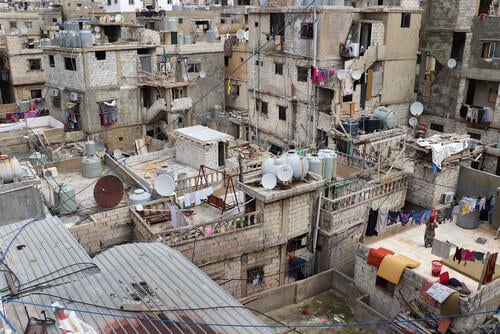
According to the latest estimates, there are around 135,000 migrant workers in Lebanon, most of whom are from Ethiopia, Bangladesh, Sierra Leone, Sri Lanka and the Philippines. The majority are women employed in private homes as domestic workers – cleaning, cooking and looking after the children of their employers.
Filling healthcare gaps
Since 2020, MSF has adopted a multidisciplinary approach towards the increased needs of migrant workers in Lebanon. In Beirut, our team provides general medical consultations, prescriptions and medication, basic wound care and minor surgeries. We also refer migrants to partner medical facilities for specialist healthcare when needed.
“Many patients, mostly women, have highlighted the poor and unhealthy conditions in which they live and work, leading to negative impacts on their wellbeing,” says Hanadi Syam, MSF medical referent for the migrant workers project.
“There is an urgent need for reform of the Kafala system,” says Syam. “Efforts should be made to make sure that everyone, irrespective of his or her legal status, is able to access healthcare.”
There is an urgent need for reform of the Kafala system. Efforts should be made to make sure that everyone, irrespective of his or her legal status, is able to access healthcare.Hanadi Syam, MSF medical referent for the migrant workers project
In 2022, our teams in Lebanon provided 7,686 medical consultations to migrant workers, mostly for patients suffering from musculoskeletal conditions, gastrointestinal disorders, respiratory diseases and non-communicable diseases such as diabetes and hypertension.
With rising inflation and transport costs, access to healthcare has become a challenge for many people, often forcing them to prioritise their need for essentials, such as food, over healthcare.
In 2023, we started visiting neighbourhoods in Beirut and in Mount Lebanon governorates where most migrant domestic workers live, to find people who need healthcare but who cannot easily access it.
“Most of our patients who do not live in their employers’ houses stay in unsanitary or overcrowded homes, and many turn to destructive behaviours as a coping mechanism,” says Nour Khoury, MSF psychologist.
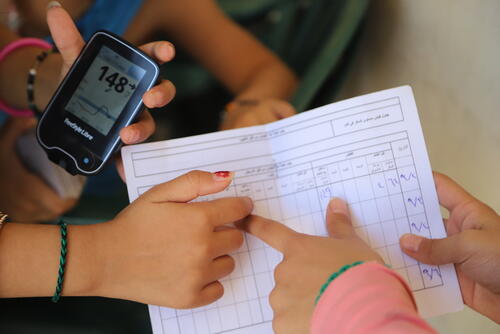
Many patients have been through difficult life events, whether on their journeys to Lebanon or after they arrived.
“They tell us about the difficulties of coping with the socioeconomic crisis and with their daily lives, but also about experiencing violence, forced labour and sometimes even torture,” says Khoury.
In Lebanon, we provide psychotherapy and individual counselling, as well as psychiatric care to people with acute mental health needs. In 2022, our team provided 1,471 mental health consultations to migrant domestic workers suffering from depression, trauma, anxiety or psychosis, much of which can be directly linked to their living and working conditions.
Engaging with communities
In Lebanon, MSF health promoters engage with the migrant community to help establish relationships with the domestic workers and gain their trust.
“Involving the community of migrant domestic workers is a key component of our approach,” says Dilshad Karaman, MSF health promotion manager. “By meeting representatives of the community, we are able to listen to their needs and to help give them a voice.”
Health promotion teams also provide interpretation services in Amharic, Bengali, French and Sinhala, for patients who do not speak Arabic or English, so that language is not a barrier to their accessing healthcare.
Involving the community of migrant domestic workers is a key component of our approach... We are able to listen to their needs and to help give them a voice.Dilshad Karaman, MSF health promotion manager
A broken system
Under the Kafala system, employers – also known as kafeel (sponsors) – are legally bound to provide private health insurance for their domestic workers, but this only includes hospitalisation in case of work-related accidents, and does not include general healthcare, mental health support or the cost of medication. As a result, access to health services is extremely limited for many migrant workers in Lebanon.
The multi-layered crisis that has gripped Lebanon since 2019 has further compounded the difficulties experienced by migrant domestic workers, impacting their physical and mental health. Many of those who entered the country legally have since lost their legal status.
Often employers can no longer afford to pay their salaries, while other migrant workers are forced to flee due to exploitation or violence. Without official documents, it can be much harder to find a job and support themselves, further limiting their ability to access healthcare. Meanwhile, migrant workers who want to be repatriated often find themselves unable to leave Lebanon without the right documents.
*Name changed to protect identity




